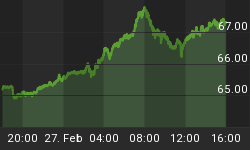I am sending this Newsletter today, Saturday, a departure from my normal practice, because of what I see as the importance of the inability of Washington politicians to - at least for the time being - come together on the so-called 'sequester budget cuts' that barring subsequent agreement have now taken effect.
As anyone in the world who can hear or read likely knows, last night U.S. President Obama signed an order putting the 'sequester budget cuts' in place. This means that between now and September 30 - the end of the U.S. Federal Government fiscal year, that absent subsequent negotiations and agreement that changes things - $85 billion in spending cuts will be made from the current 2013 U.S. federal spending budget (before these cuts, $3.8 trillion).
In the end, it seems to have come down to a complete obstinance on the part of the Republican party to bend on tax increases, with John Boehner, the Republican Speaker of the House of Representatives saying yesterday: "The discussion about revenue (read 'tax increases') is over. It's about taking on the spending problem". This strikes me as a statement that in itself can do little but influence increased (if such a thing is possible) polarization in Washington. Query: how can the House Speaker retract from such a 'set in concrete' statement going forward?
In my Newsletter yesterday, I said:
"If what happens is not a repeat of what happened in July/August 2011 at the time the most recent 'debt ceiling agreement' was reached:
-
I will be on 'the surprised' side of things; and,
-
I can't see how non-agreement can lead to anything but a weaker U.S. economy and a weaker U.S. Main Street."
I also said yesterday "I will find it very confusing if the financial markets do not react negatively if an agreement isn't reached on the sequester cuts". They have not done that so far - and that confuses me. Yesterday the Dow and S&P 500 Index went up by 35 points (14,090 close) and 3.52 points (1,518 close) respectively on March 1 - a day when the algorithms must have been processing minute by minute 'sequester news' at mind-boggling speed.
I certainly hold to the view that non-agreement must lead to both a weaker U.S. economy and a weaker U.S. Main Street. However, I am no longer nearly so sure that the 'last debt-ceiling negotiation scenario' will be repeated. This in particular after the aforementioned - what I think to be 'unnecessarily strong' - statement by Mr. Boehner.
That said Mr. Boehner also is reported as saying yesterday "I did lay out that the House is going to move a continuing resolution next week funding the government past March 27, and I'm hopeful that we won't have to deal with the threat of government shutdown while we're dealing with the sequester at the same time". Query: Does this infer further sequester discussions are not foreclosed, or does it simply mean 'dealing with the sequester consequences as they arise'?
I also in my Newsletter yesterday said:
"If I am assessing things correctly, $85 billion is about 2.2% of budgeted U.S. federal spending, and not quite 10% of the budgeted deficit. Of course, if the sequester cuts are made, the U.S. federal government revenue intake for fiscal 2013 will almost certainly be negatively impacted. The point in all this is that from my perspective the foregoing demonstrates 'how close to the line' America is from a federal fiscal point of view."
As I re-read that paragraph, I have concluded that what I said may be too opaque. To be clear, the point I was (and am) making is:
-
in the overall scheme of America's national debt and deficits, $85 billion per year is rather immaterial;
-
if one accepts $85 billion to be immaterial in a U.S. federal accounts context, the forecasted impact of the sequester cuts in a the next seven months on GDP (0.5% decline) is material, and lost jobs (400,000 - 750,000) are significant; and,
-
consider the negative impact on America's economy if this year's U.S. pre-sequester federal budgeted spend of $3.8 trillion was cut by $300 billion instead of by only $85 billion. Query: How much more would the negative leverage on U.S. economic performance then be, and would a $300 billion U.S. federal spending reduction result in an exponential negative economic impact?
Interestingly, I have seen no report or comment on what the resultant U.S. federal deficit is expected to be for fiscal 2013 following sequester cuts. If U.S. GDP indeed drops by 0.5% as a result of the sequester cuts, I would expect U.S. federal government revenues to fall from pre-sequester forecasts. If that is right, and I think it has to be, then what was forecast to be a $900 billion 2013 U.S. federal deficit will be more than the result derived by deducting the $85 billion in sequester cuts from the previously forecast $900 billion 2013 federal deficit ($815 billion).
That is perhaps a better way of explaining what I meant last Friday by the phrase "the foregoing demonstrates how close to the line America is from a federal fiscal point of view".
America is still without question the world's largest and most important economy. That said, you can only pump helium into a balloon for so long before it explodes. Typically an exploding balloon does not hurt anyone. America is not a balloon.
Topical Reference: Obama presses Congress for deal to end spending cuts, from Reuters, Matt Spetainick, March 2, 2013 - reading time 2 minutes. Also see Boehner says no new taxes after sequester meeting in White House, from The Hill, Daniel Strauss, March 1, 2013 - reading time 2 minute.















